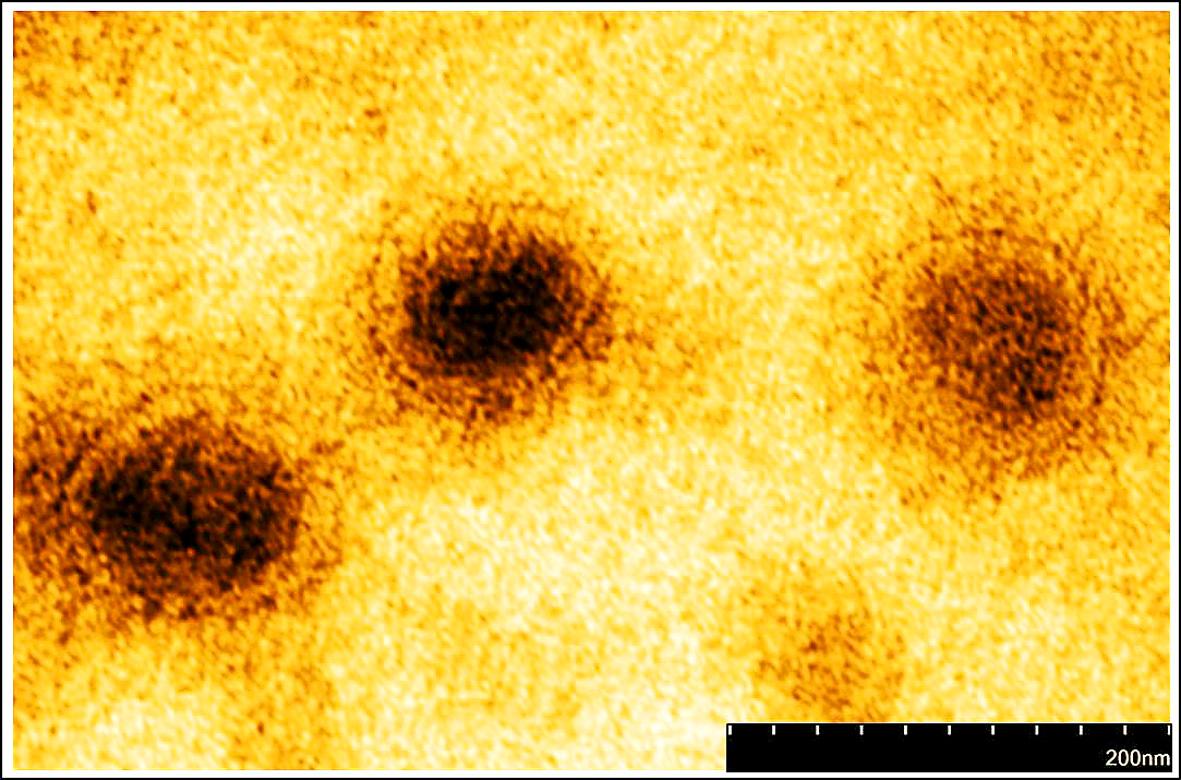Virus Outbreak: Team finds antibodies that might block coronavirus
FROM:Taipei Times
By Wu Liang-yi and Jake Chung / Staff reporter, with staff writer
Chang Gung Memorial Hospital yesterday said that it has collaborated with other institutes to isolate 22 new strains of SARS-CoV-2 and complete the full genome sequencing of the virus, which causes COVID-19.
A team of researchers has also found 25 strains of antibodies in beta-cells collected from three COVID-19 patients, said Huang Kuan-ying (黃冠穎), a doctor at the Department of Pediatric Infectious Diseases at the hospital’s Linkou branch.
The hospital found that a monoclonal antibody combined with the coronavirus’ spike protein could help inhibit angiotensin converting enzyme-2 (ACE2) and prevent the virus entering the body.

SARS-CoV-2 is pictured in an undated photograph.
Photo courtesy of Chang Gung Memorial Hospital
ACE2 is an enzyme attached to the membranes of lung, artery, heart, kidney and intestine cells, and is the main entry point for coronaviruses.
Chang Gung University Research Center for Emerging Viral Infections head Shih Shin-ru (施信如) said the antibody could be used to prevent the virus from replicating itself in the human body.
If the antibody proves effective in human trials, it could be used as a treatment for COVID-19 or used in prevention, she said.
The antibody, which originates from the human body, would be much safer to use than antibodies originating from animals, she added.
She suggested that the strains of antibodies be used in permutations for rapid test kits, as it would increase test kit sensitivity and specificity toward SARS-CoV-2.
The hospital also said that it would work with the team to develop a test kit and conduct human trials, adding that it would also reach out to the local pharmaceutical industry to help develop a treatment.
The hospital’s collaborators include Academia Sinica, the National Defense Medical Center’s Graduate Institute of Medical Sciences and a team from the University of Oxford.